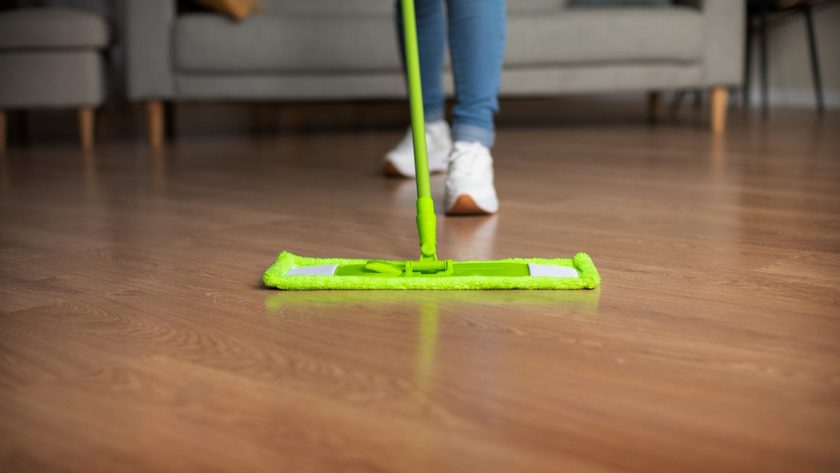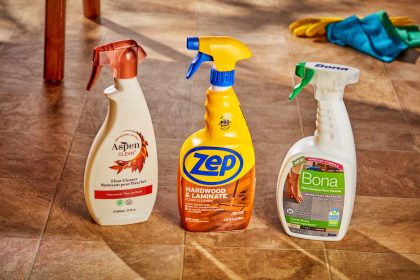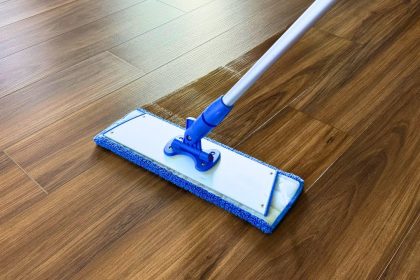Vinyl plank flooring is becoming increasingly popular among homeowners in the UK, admired for its stylish appearance, ease of installation, and excellent durability. But like any flooring, it needs regular care to remain looking its best. Thankfully, understanding how to care for vinyl plank flooring doesn’t require specialist knowledge or complicated routines—just a few simple habits can help keep your floors pristine for years.
This practical guide covers essential tips, protective practices, and everyday solutions to keep your vinyl floors in excellent condition, whether they’re newly installed or already established in your home.
Why Regular Care for Vinyl Plank Flooring Matters
Vinyl plank floors are designed to handle daily family life, including foot traffic, spills, and pets. However, even the toughest floors can show signs of wear if neglected. Without proper care, vinyl floors can become scratched, stained, or dull, making the space look older and less inviting. Consistent maintenance preserves the floor’s beauty, extends its lifespan, and helps you avoid costly replacements down the line.
Daily Maintenance of Vinyl Flooring: Keep It Simple
The simplest step you can take to maintain vinyl plank flooring is a quick daily sweep. Dust, grit, and dirt are the leading causes of small surface scratches, which gradually dull the floor’s finish over time. Regular sweeping or dust mopping with a soft microfiber mop captures debris effectively without scratching the floor surface.
Avoid rough-bristled brooms or abrasive vacuum attachments—these can damage the protective layer on your vinyl floor, causing unwanted wear.
Weekly Cleaning Routine: Gentle and Effective
Weekly cleaning keeps your vinyl plank flooring looking spotless and fresh. A gentle damp mop using the right products can make a significant difference. Follow these simple steps:
- Use warm water: Avoid very hot or cold water, as extreme temperatures can affect your floor’s durability and appearance.
- Choose the best cleaner for vinyl floors: Always select mild, pH-neutral vinyl flooring cleaners specifically formulated to avoid residue or streaks. Harsh chemicals, bleach, and ammonia-based cleaners can strip the finish, causing dullness or fading.
- Damp, not wet: Wring your mop thoroughly before use. Vinyl plank flooring is moisture-resistant but can be damaged if water seeps into seams or edges over time.
- Dry immediately: After cleaning, quickly dry the floor using a soft microfiber cloth or mop. This prevents water spots and reduces the risk of moisture damage.
By regularly applying these straightforward vinyl plank flooring cleaning tips, your floors will remain shiny and attractive.
How to Remove Scratches from Vinyl Plank Flooring
Even careful homeowners encounter occasional scratches. The good news is minor scratches can often be easily addressed:
- For superficial scratches, gently buff the affected area using a vinyl-specific floor polish or scratch remover. These products are designed to blend seamlessly, restoring your floor’s smooth appearance.
- For deeper scratches, specialised vinyl repair kits are available online or at home improvement stores. These usually come with clear instructions and simple tools to help you effectively conceal the damage.
If scratches seem frequent, reassess your daily care routine and look for areas of potential friction, like unprotected furniture or pet claws.
Essential Vinyl Floor Protection Tips
Prevention is the most effective strategy for maintaining the condition of your vinyl plank flooring. Here are practical tips for protection:
- Furniture Protectors: Felt pads placed beneath chairs, sofas, tables, and heavy appliances prevent scratches and indentations. Regularly check and replace these pads to ensure maximum protection.
- Entrance Mats: Placing mats at every exterior entrance drastically reduces the amount of dirt and moisture tracked onto your vinyl flooring.
- Curtains or Blinds: Direct sunlight can fade or discolour your vinyl flooring over time. Simple window treatments like blinds or curtains help protect your floors from harmful UV rays, ensuring long-term vibrancy.
Dealing with Stubborn Stains
Despite being stain-resistant, vinyl plank flooring can occasionally fall victim to spills and stubborn marks. Here’s how you can tackle common stains effectively:
- Food and Drink Spills: Immediately clean with warm water mixed with a mild vinyl-safe detergent. Quick action usually prevents permanent marks.
- Tougher stains, such as ink or scuff marks: Gently dab the stain with rubbing alcohol or mineral spirits on a soft cloth, taking care to avoid excessive rubbing. Always rinse the area afterward with clean water, then dry immediately to avoid moisture damage.
Never use abrasive cleaning pads or solvents—these can cause permanent damage to your floor’s protective layer.
Common Mistakes to Avoid
Understanding what not to do when caring for vinyl plank flooring can save you significant trouble:
- Avoid Excess Water: Vinyl flooring handles moisture well, but prolonged exposure to water can damage seams or cause planks to lift.
- No Wax or Oil-Based Polishes: These products can dull your floor’s finish or cause slippery surfaces. Always choose vinyl-specific cleaners.
- No Steam Cleaners: Steam cleaning produces high temperatures and excessive moisture, potentially warping or discolouring your vinyl flooring.
FAQs: Quick Answers for Vinyl Plank Flooring Care
1. What cleaner is safest for vinyl plank floors?
Use pH-neutral cleaners specifically designed for vinyl flooring to maintain its finish and prevent streaking or residue.
2. Can I use vinegar regularly to clean vinyl plank flooring?
Occasional diluted vinegar cleaning is fine, but regular use can dull your vinyl floor’s finish. Stick with mild, vinyl-specific cleaners for regular maintenance.
3. How often should I mop vinyl plank flooring?
Weekly gentle damp mopping is sufficient, complemented by daily sweeping or dusting.
4. What’s the easiest way to protect vinyl flooring from scratches?
Felt furniture pads, entrance mats, and prompt dirt removal significantly reduce scratches and wear.
Keeping Your Vinyl Plank Floors Beautiful for Longer
Caring for vinyl plank flooring doesn’t need complicated routines or expensive products. Simple, consistent maintenance, thoughtful preventative measures, and quickly addressing spills or scratches are all it takes. By following these practical vinyl floor protection tips, you’ll ensure your flooring continues to enhance your home’s style, comfort, and value for years to come.



